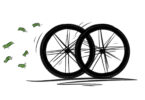With the bike industry caught in a patch of turbulence right now, many brands are looking outside the world of two wheels for leadership cues on how best to navigate the tidal changes. What does this outside influence mean for the bike industry and these brands? We went for a gravel ride with Canyon’s new CEO Winni Rapp to discuss the topic.
The bike world is undergoing a tectonic shift. The boom in demand has meant massive growth for some, but chaos and confusion for others with supply bottlenecks and more than just a bit of existential angst. Many brands are looking inwards for answers. Some are choosing to expand, others are shaking up their managerial board, locking in the expertise of industry outsiders. Their reasoning: it’s time that cycling learned from other industries, optimised its processes and became more efficient.
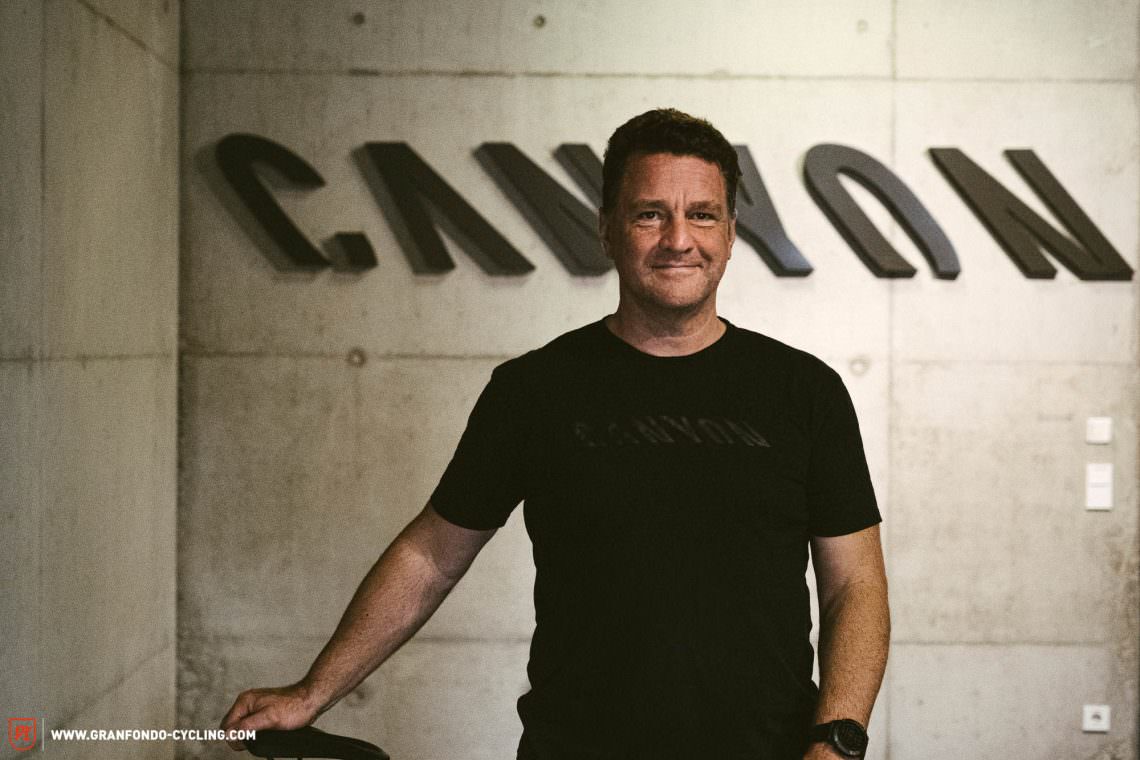
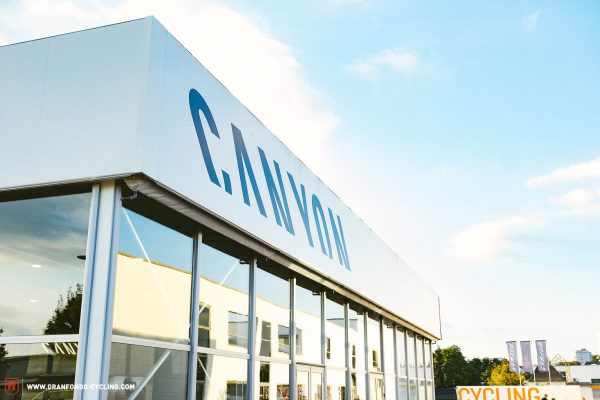
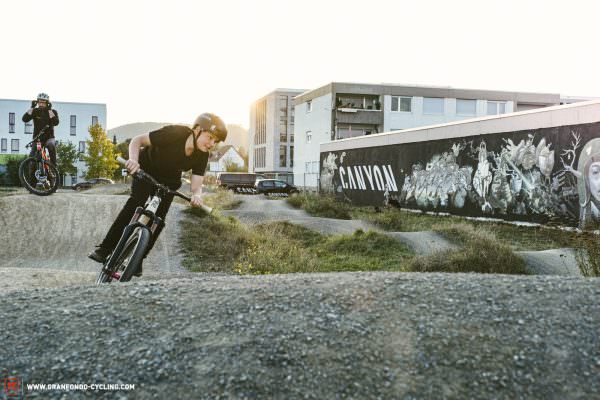
Canyon chose this route by appointing Winni Rapp as their new Chief Executive Officer (CEO) back in October after just hiring him as Chief Financial Officer (CFO) a couple of months earlier. As the world’s biggest direct-to-consumer bike brand, Canyon’s choice is an interesting one. Before being appointed at Canyon, Rapp worked for Vodafone, which is perhaps why the press release announcing his entrance was met with mixed feelings in the bike community, with some proclaiming the downfall of Canyon. Would an industry outsider automatically threaten the future and authenticity of the brand, bringing the single-minded pursuit of making a profit? Or could someone like Rapp bring a level of savviness that Canyon need to reach the next level? To answer the question of what Winni Rapp can do for Canyon and discuss the future of the industry, we arranged a gravel ride with the man himself. And judging by the speed with which he took up the offer, we think he can be something of a fan of bikes.
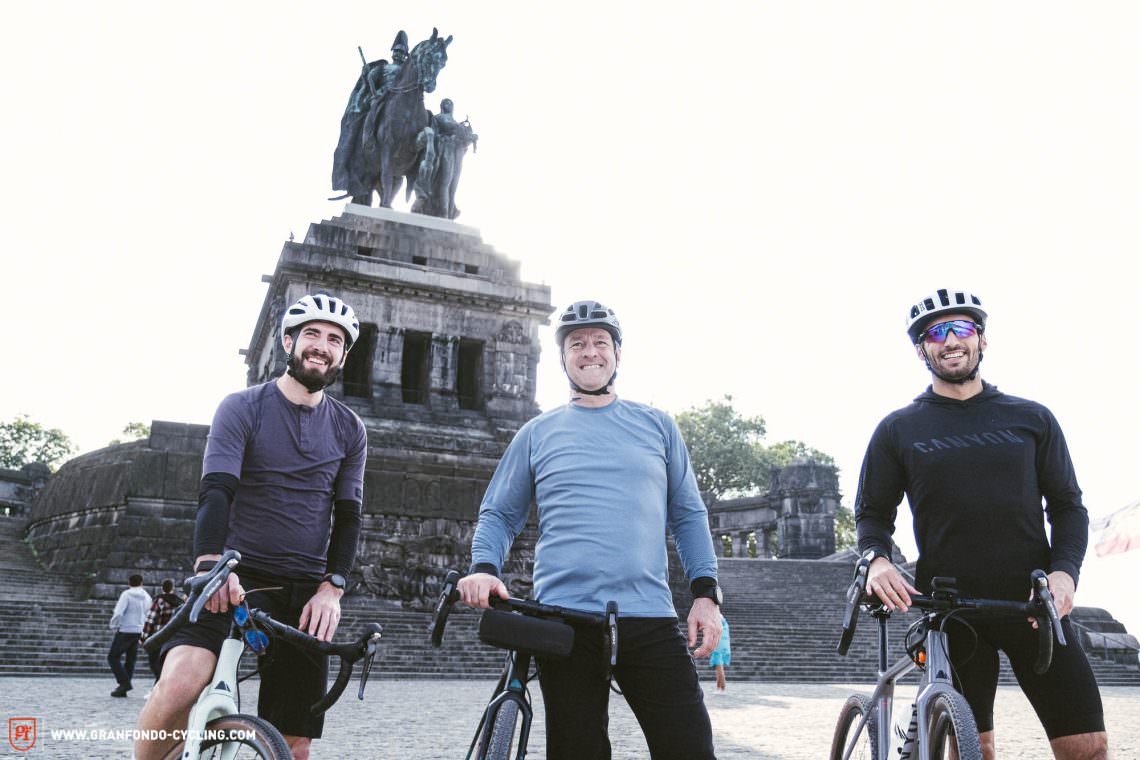
Who is Winni Rapp?
Rapp grew up in the German university town of Ulm, where he chose to stay and study business economics before cutting his teeth in a family-run business. He found a route into the tech and telecommunications world, where he’s thrived over the past two decades, working in managerial roles at big companies like Deutsche Telekom, SAP, Unitymedia, and most recently, Vodafone. The common theme at each company has been growth and evolving markets – and he’s always felt at home doing that. He describes himself as someone who prefers to make big changes in a dynamic market rather than hunt for marginal gains in a business that’s close to the saturation point.
It’s not the job description that’s decisive – it’s the thought of whether or where you can make a difference and what you can bring to the company. – Winni Rapp
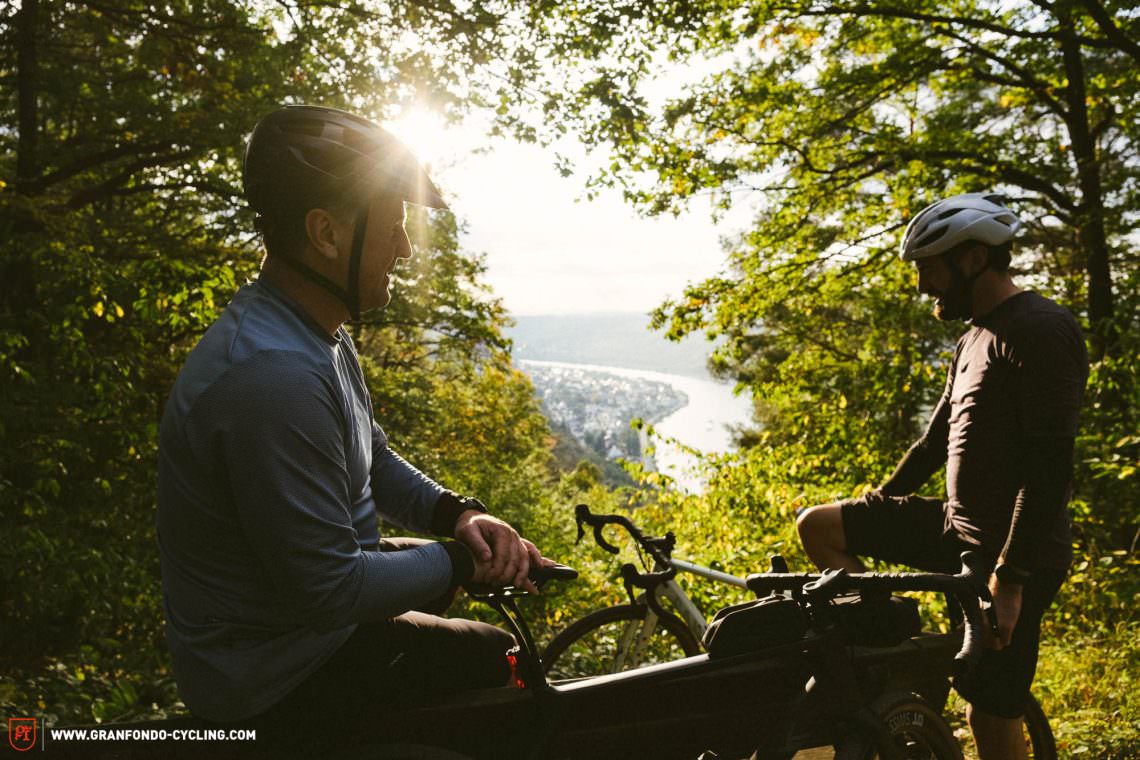
Even though he started out at Canyon as CFO, this is one accountant that is not only willing but also motivated to invest his energy in fields that go beyond figures and compliance, and looks for ways in which he can help develop the company and help its transformation along. Perhaps it doesn’t even matter to Canyon whether Rapp is CEO or CFO when the results are coming.
Winni Rapp: the route to Canyon
After his final day at Vodafone, Rapp took eleven months out before starting at Canyon. For some, the return to the workplace (even in the same field you’ve always known) could have been tough, but Rapp was unfazed – after all, he was already familiar with the brand and its workings. One Saturday morning, six years ago, he’d saddled up and joined Canyon and 40 other riders for a social ride. He was swept up by the casual event with test bike fittings, coffee, a three-hour ride and post-ride cake back at the HQ. Witnessing how customers and staff mixed and shared their passion was an eye-opener. And yes, he did buy an Endurace directly afterwards. From that ride, he pencilled in a meeting with Roman Arnold, Canyon’s founder and then CEO to discuss how companies in different sectors – say, the German internet service provider Unitymedia and Canyon – could learn from each other.
Over the years, the dream of joining Canyon at the HQ in Koblenz manifested in Rapp’s mind through each career progression, promotion and salary increase. One thing was certain for Rapp: if an opportunity presented itself, he’d go to Canyon. Now that he’s there, is it turning out how he imagined? Yes, he answers confidently, it’s growing strongly, but hasn’t yet implemented the right processes in the right places – making it the ideal ground for Rapp to flex his know-how and turn his dream into reality.
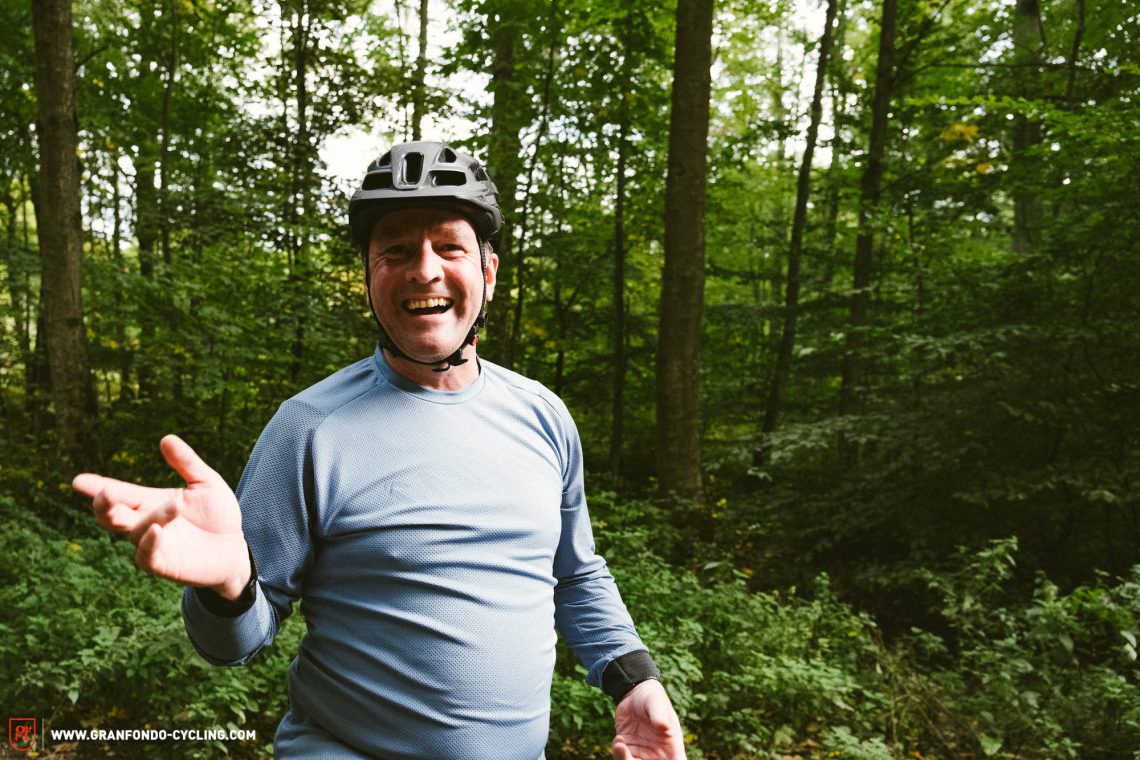
People are capable of a great deal when passion and emotions are involved. – Winni Rapp
As humans, most of our lifetime is spent working, so it makes sense to have a job that doesn’t just make money, but adds something extra to your life. Call it passion, or just enjoyment, these elements have become increasingly important for Rapp. On the Friday afternoon that we spent with him at Canyon, his energy for the new endeavour was palpable. And endeavour is exactly the right word: having stepped up to the title of CEO, settling into a decent work-ride balance hasn’t been easy. He’s a busy man. On the occasions when he clears his inbox and manages to squeeze in a ride, he’s still largely loyal to the Endurace – unless, of course, he’s opting for all-out speed (for that purpose, he takes the Ultimate with deep-rimmed aero wheels) or the Lux Trail when mountain biking. For today, we’re on the Grizl – Rapp’s first choice when he’s not sure what to expect and our choice for an in-depth test ride of the Canyon Grizl AL.
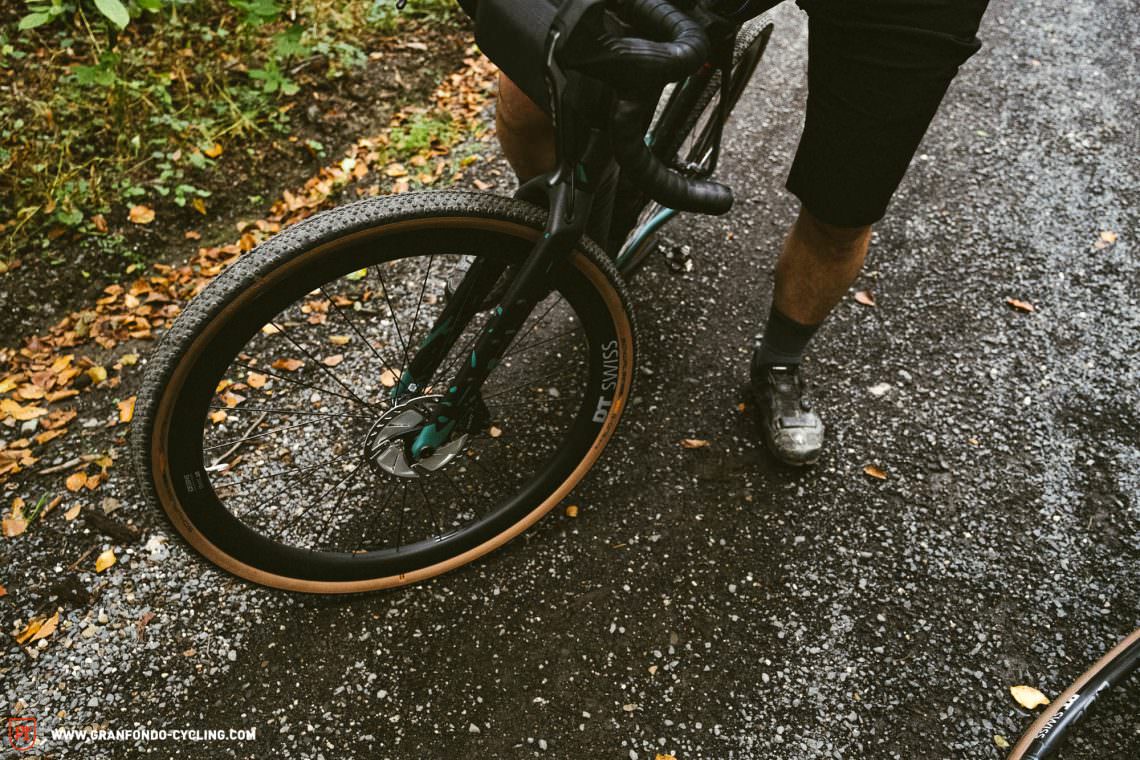
By the time the year is out, I want to have ridden every single Canyon model.’ – Winni Rapp
From an internet connection to a gravel bike: Rapp as the CEO
How different can a job on the upper floors in the outdoor industry be from working in telecommunications or software? Sure, there are obvious differences like the final product or business models – seriously, could you get as worked up about an internet connection or accounts as you could about something like bikes? Rapp, who is a keen cyclist, agrees on this point but is quick to state that he’d be useless in product development and design. ‘No way,’ he laughs, ‘You wouldn’t want me there. You don’t know what sort of bike would come out.’ One of his principal beliefs is to let each department do its thing, which leaves him to pick up the strings from each area and bring them together in the best, most efficient way possible. With a clear focus, he’s well-placed to create cohesion.
I’m not the product wizard, I’m the general manager who’s checking that everything works together. – Winni Rapp
But there are other differences that aren’t just linked to what the company produces. Unlike major players in other sectors, Canyon’s systems and processes aren’t as developed yet. Rapp sees this as an opportunity rather than an obstacle: if you know where the gaps are, you can build bridges to the future. This is exactly where he sees his major role within Canyon’s development: he comes from an industry that’s already reached the level of efficiency that Canyon needs for the next chapter. What’s more, Rapp has experience guiding companies far bigger than most of the rest of the bike industry. Each day tends to see Rapp using the skills and experiences acquired over his long career for the good of Canyon by streamlining and improving processing. When not strategizing, he’s either digging into Excel cells (something he’s not adverse to) or visiting different departments to gather the full picture on the ground before making any decisions.
To me, Canyon stands for passion – and that’s a thing of great value. – Winni Rapp
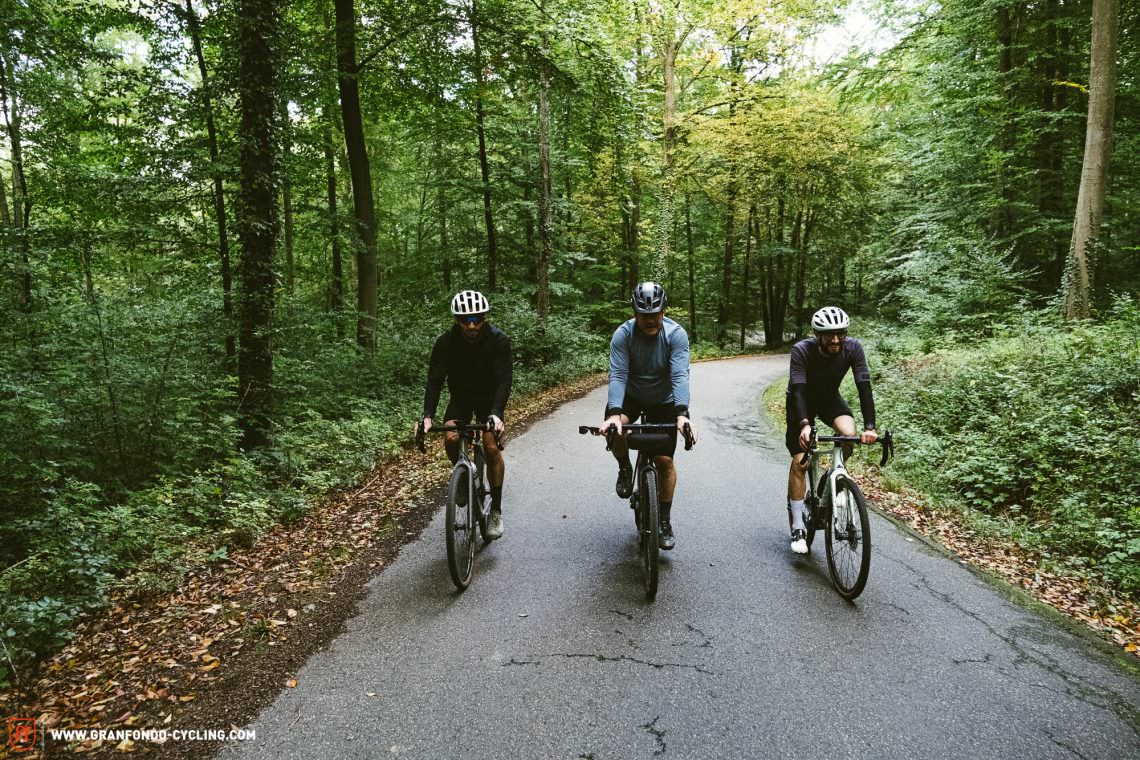
Rapp sees his task as ensuring Canyon reaches the next level while maintaining the passion of the workforce. To him, it’s irrelevant whether Canyon’s CEO comes from cycling or not, as long as they’ve got the skills and a passion for bikes – both of which he has in abundance. Acutely aware of where his time is best invested, he’s happy to leave different areas of responsibility to others, meaning that while founder Roman Arnold has stepped away from the role of CEO, he’s still on the board and involved in product development, market positioning and on the professional team side of things. It’s a situation that Rapp is happy with and it means there’s less fuel on the controversial fire of whether an industry outsider can lead a bike company. On the contrary, to further scale and grow any of the bigger players within the cycling industry, it’s obvious that their leadership will have to come from sectors that have more experience in process, logistics and strategy – skills which some could argue are less prevalent amongst those who’ve only ever worked within the two-wheeled sector. It’s happening across cycling right now and it makes you wonder how it’s working. How are these new individuals integrating their skills into current company cultures and how are these being developed without creating a culture shock? How can you speed up development across various departments, including service (of bikes, rather than customers this time), which has traditionally been an Achilles heel? As teams grow, how do you maintain a high level of teamwork? For many brands within cycling, the biggest problems won’t be product development or innovation, but more managerial and relating to efficiency, hence why it’s a smart move to headhunt talent and proven leadership from elsewhere.
Where next for Canyon?
Canyon, along with the majority stakeholder, the Belgian investment group Groupe Bruxelles Lambert (GBL), have shortlisted three key areas for improvement: supply chain, service and a concept for digitalisation focusing on urban mobility. The list was originally far longer, but this is a lesson in streamlining and prioritising – do less, but better (which sounds a bit like ‘work less, ride more’, so count us in!). Clearly, Rapp brings clarity that Canyon needs. The importance of reliable supply chains has been increasingly evident in the past two years. Managers, including Rapp, don’t enjoy facing challenges like huge demand, bottlenecks, and last-minute order cancellations. So, how does Canyon prepare for uncertainties? They’re continuing to invest in long term partnerships with suppliers, which embody the values and reliability for which Canyon have become known. For Rapp, trust is the company’s ticket to minimising any uncertainties in the supply chain.
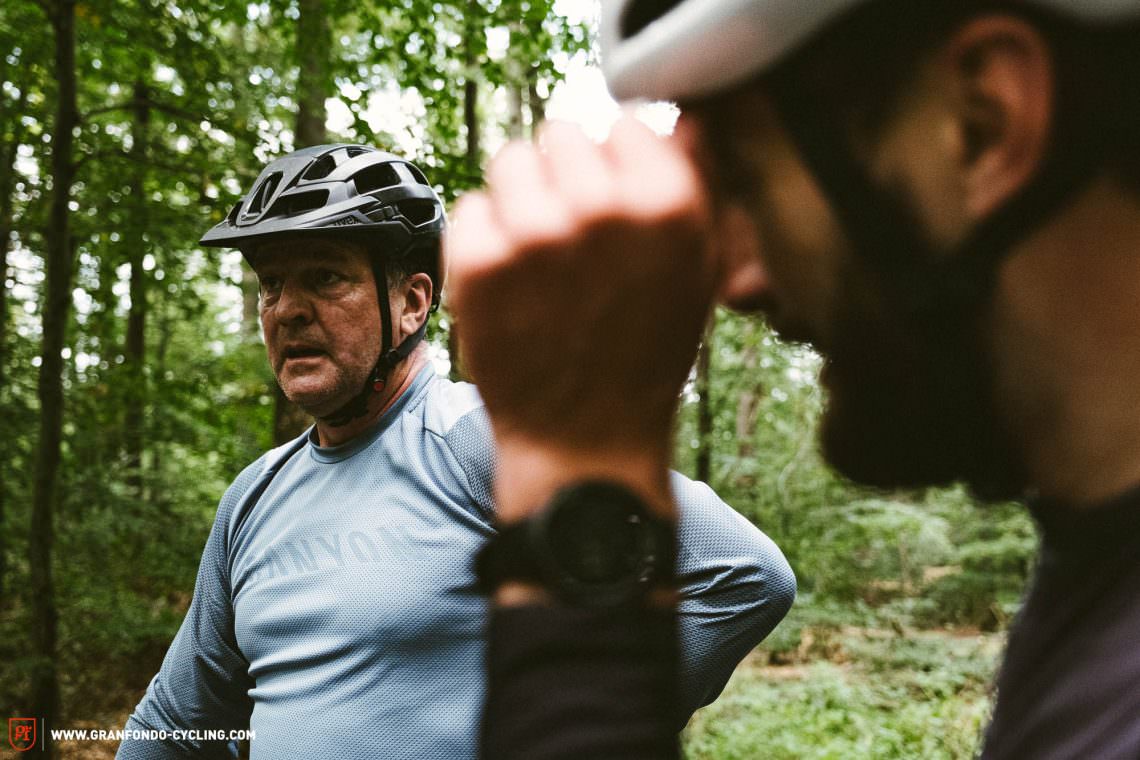
Canyon has always been considered by partners and suppliers as a trustworthy and reliable force that delivers what it says. – Winni Rapp
But you can only control so many factors, which is why Rapp is teaching Canyon how to be more agile and flexible. Here, the challenge is remaining agile when you have automated production and it’s one that Rapp is working on. The next top priority is servicing (of bikes) – a department that matters massively to Canyon who sells direct to consumer. While Rapp is aware that the majority of their current performance-focused Canyon owners will have considered this aspect during the purchasing process, he knows that their current growth and entrance into new markets means that servicing shouldn’t be left in the hands of YouTube or local bike shops. He’s taking the task seriously: in front of his desk there’s a ‘Service wall’, showing where Canyon is right now and laying out the pathway to what Service will look like in order to create something that adds value.
‘My experience tells me that I’m someone who spots a solution by looking closely and constantly having my eye on something, which is why our service goals are right in front of me. – Winni Rappp
Service is a hot topic, especially as ebikes gain ground, requiring much more complicated servicing methods due to the technology inherent within them. This leads us onto Canyon’s third strategic priority: digital experiences. In terms of urban mobility, they’re looking at how digitalization can take safety and comfort to another level. For example, bikes on social media or locating your own bike. Canyon want to focus less on the what (i. e. the specifics of your bike’s build) and more about the why, as in where you ride, why you choose one bike or another and how you’re using it. The performance attributes that customers place on bikes will therefore change to a more lifestyle-focused approach. Rapp sees this shift in ideals as beneficial for bikes and a big trend for the whole sector. But lifestyle isn’t everything and Canyon are keen to maintain a firm grip on their performance genes.
High performance bikes are in Canyon’s DNA – and it will stay that way. – Winni Rapp
The new Canyon CEO on sustainability
While sustainability doesn’t feature in their top three priorities, Canyon don’t want to shy away from the topic. As a brand, Rapp knows it has an inherent obligation to society. Studies like the Future Mobility Concept are intended to outline the scope of innovation and where it could lead to, and show that Canyon is aware of its responsibility.
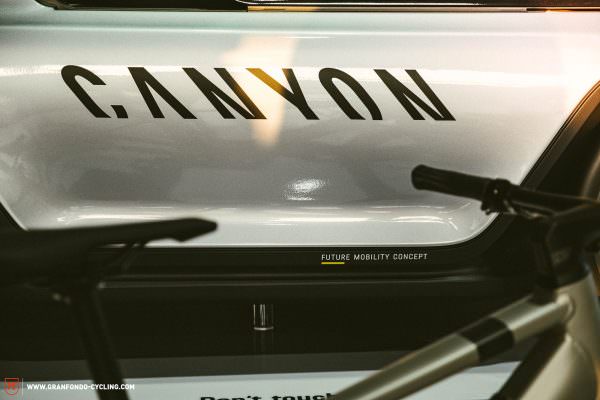
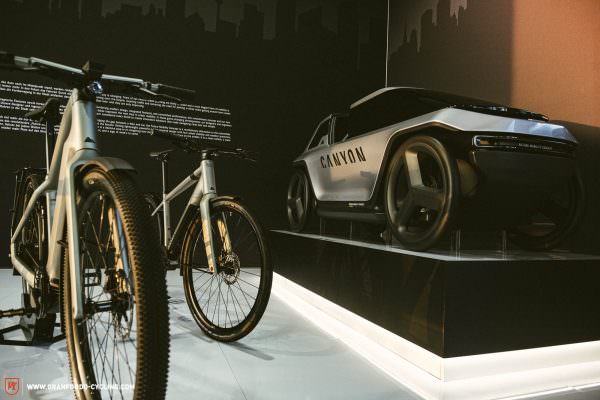
We’re doing something for the environment through serving mobility needs, providing bikes to many – but that should only be the start of it.’ – Winni Rapp
Sure, a bike has a lower environmental impact than a car. But it isn’t enough for Canyon: solar panels, a carbon neutral new building and less plastic in their deliveries. Through steps like these ones across a product’s entire lifecycle, the company wants to reduce their impact on the environment. For many, this ambition could fall short and we’d like to see more done – especially in production and recycling.
Then there’s the discussion of how a tidal shift in people’s mobility habits will have a positive effect on the environment. Picture this: not hopping in a car to go to the bakery, but going by bike – en masse. Rapp doesn’t think this is happening by force, but because people are being won over by an experience that’s both fun and safe. Canyon has been working well on this for a long time, getting more commuters on bikes and playing their part in the evolution. This is also a part of sustainability, even if often overlooked. According to Rapp, the CO2 footprint of a bike is neutralized after 300–400 km that you’d otherwise have done in a car – and probably the distance that almost every bike will do in its lifetime, at least.

What do industry outsiders in upper management mean for the bike industry?
It isn’t just the mechanics of how the bike industry works that is changing, also its position within society. To be ready for the stage of growth in the industry while simultaneously maximising their part within mega trends (such as the forecasted changes within urban mobility), bike brands need to look for individuals with a broader experience base and a wider skills to lead them through these changes. As we saw at the International Motor Show (the IAA) in Munich, a bit more self-confidence wouldn’t go amiss either if cycling is going to go toe-to-toe with the major automotive brands who will certainly be looking for their share in the future of mobility. The good thing is that Rapp has all these qualities – and some.
There are some pretty simple reasons why more and more talent is coming from outside cycling: right now, the bike industry has reached a level where it can attract individuals and leaders of multinational companies, whereas previously it was just too small. With his experience leading bigger companies, Rapp comes to Canyon with the knowledge of how to implement successful, smooth and sustainable growth. By providing his integration into current company culture works he brings a decisive advantage of being able to create change and educate the management of tomorrow – this time born from within the bike industry itself. And on the topic of whether an industry outsider can truly love bikes? You won’t question it when you meet Rapp. On our gravel ride, he brims with energy when it comes to his work and is clearly happy to be turning his passion into his career. When we pull into HQ at the end of the ride, he’s greeted by his friend Dieter, who’s collecting his new bike – personally brought for him by Rapp.
It’s evident that the bike industry is at the level where it demands and can attract leadership with competences from outside of its confines in order to face the future challenges. Will this lead to a culture shock and a loss of authenticity? We don’t think so. Not in the case of Canyon’s Winni Rapp, who unites proven leadership with a hands-on approach and a passion for cycling. We’re excited to see what the next chapter holds.
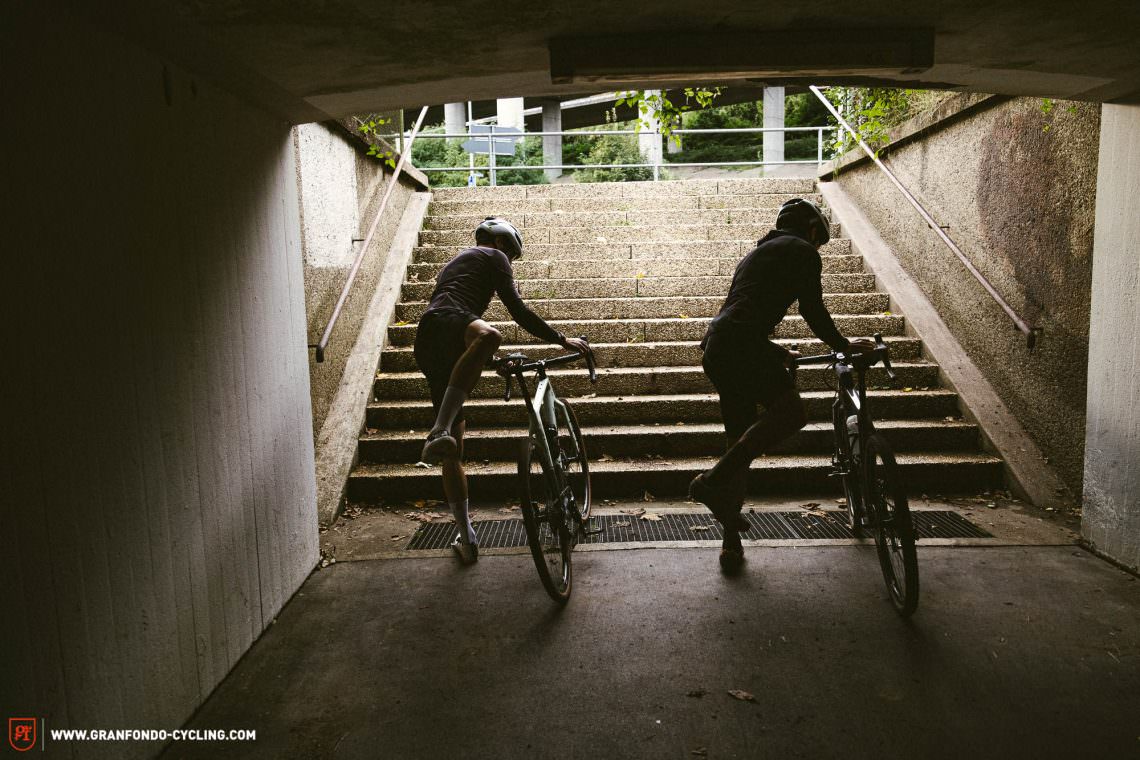
Did you enjoy this article? If so, we would be stoked if you decide to support us with a monthly contribution. By becoming a supporter of GRAN FONDO, you will help secure a sustainable future for high-quality cycling journalism. Click here to learn more.
Words: Tobias Hörsch Photos: Robin Schmitt


